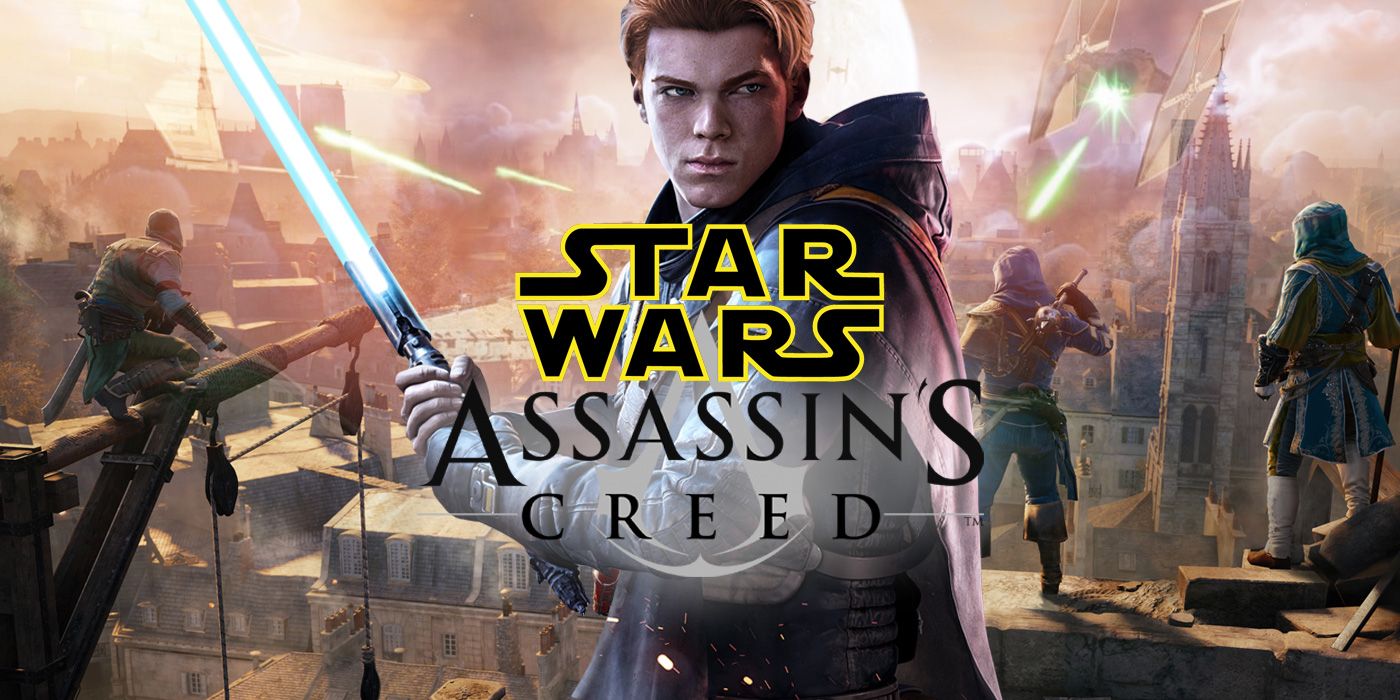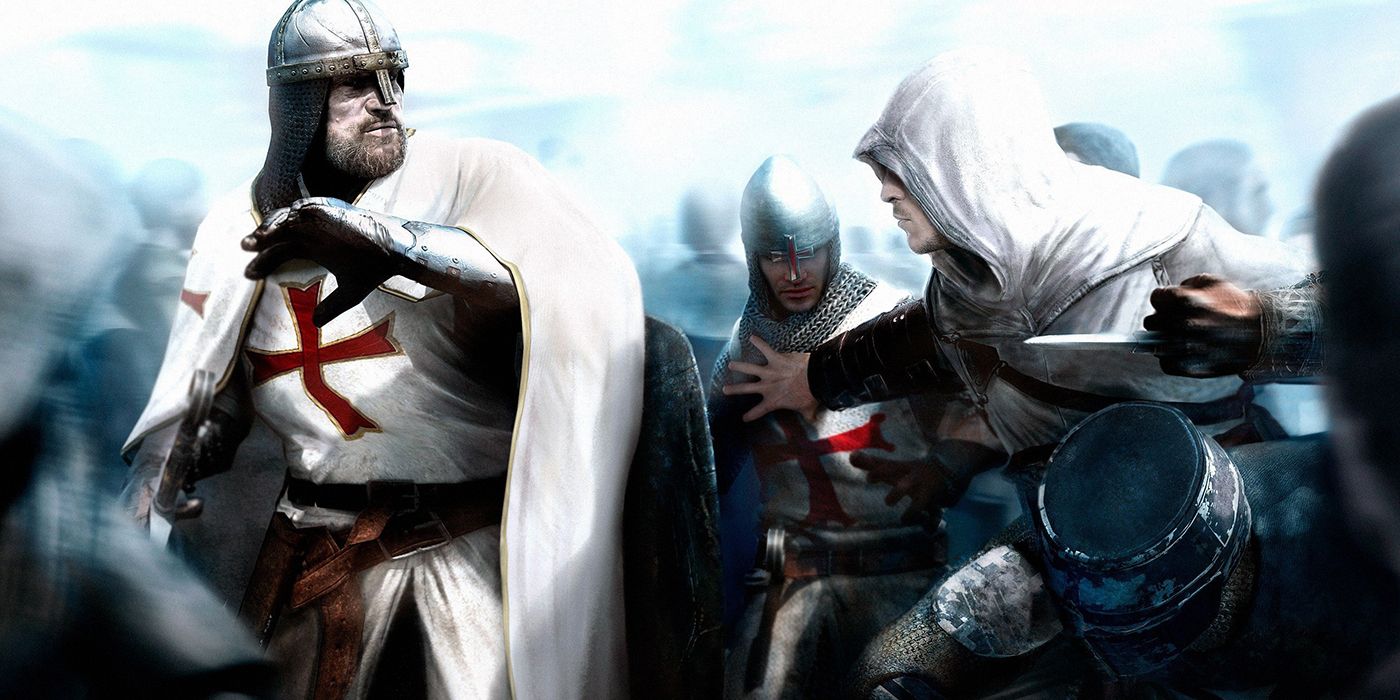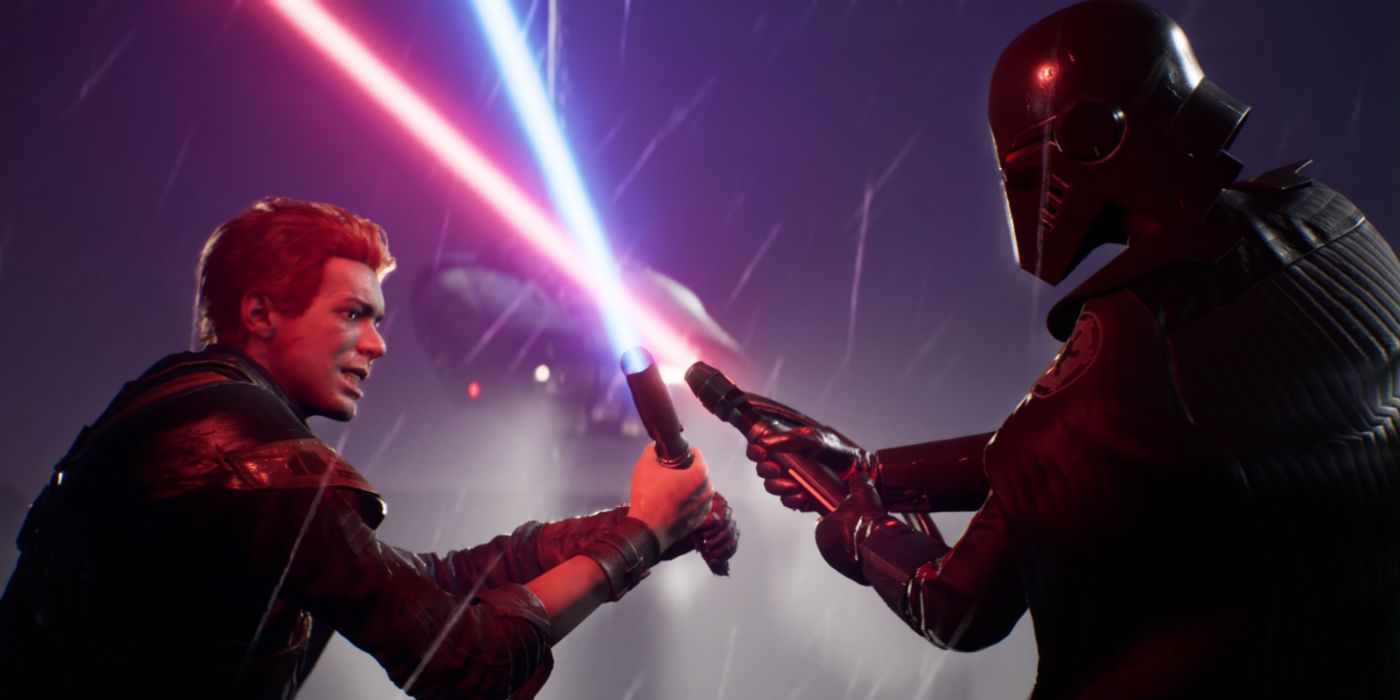
LucasFilm Games and Ubisoft have announced that the two companies will be collaborating to deliver a story-driven, open-world Star Wars game. Development will be handled by Ubisoft’s Massive Studio, with the announcement coming shortly after the success of Ubisoft’s last open-world game, Assassin’s Creed Valhalla.
However, Ubisoft’s new Star Wars game needs to avoid one problem that Assassin’s Creed ran into. If it does, the new game has the potential to tell an exciting and original Star Wars story.
RELATED: Liam Neeson Interested In Returning As Qui-Gon For Obi-Wan Show

The Assassin’s Creed games have increasingly moved away from using the series’ overarching conflict between the Assassins and the Templars as their main stakes. Valhalla, for example, did so by taking place before by dealing directly with precursor groups, the Hidden Ones and Orders of the Ancients. The reason this shift was necessary for the series to continue telling compelling stories is that players already know that the franchise depends to some degree on the Assassin-Templar conflict never being resolved, at least not until a game marketed as the final installment.
To tell new and interesting stories, Assassin’s Creed has made a few significant shifts over the last few years. As well as a reduced focus on the Assassins and Templars in the historical-fiction plotlines, there has been a greater focus on player control of the protagonist within the story as well as RPG elements. Earlier Assassin’s Creed games, especially those with fan-favorite protagonist Ezio Auditore, were able to invest players in the main character without these features.
However, as the franchise continued and it became increasingly clear than no individual protagonist could significantly turn the tide of the Assassin-Templar conflict, it became increasingly hard for many players to invest themselves in the stories. Odyssey and Valhalla, both games which reduced focus on this conflict, were better received (generally) than many of the other Assassin's Creed game released after Black Flag.
RELATED: Adorable Star Wars Fan Art Features Kylo Ren Meeting Baby Yoda

If a story-driven open-world Star Wars games focuses too heavily on its own universe’s multi-millennia conflict between light and dark, the Jedi and the Sith, it risks increasing the stakes of its story to such an extent that, ironically, players will be less invested overall. Just like the Assassin-Templar conflict, a focus on shifting the balance of power between the Jedi and the Shift risks making players feel too safe in the knowledge that, no matter what their role is in this story, the conflict will continue to fluctuate back and forth as new stories demand.
Ubisoft’s new Star Wars game should have Jedi and Sith characters but should not rely on the player being emotionally invested in that conflict. Instead, it should take a page out of one of Star Wars’ most successful recent outings, The Mandalorian, and focus on the interpersonal relationships characters have within that universe and the stakes those relationships generate.
The Star Wars universe has more than enough lore to tell stories which don’t feature galaxy-wide stakes or the balance between light and dark. Rogue One even showed that Star Wars stories with predetermined outcomes can still be compelling when the focus is on characters and their lives within the Jedi-Sith conflict rather than on that conflict itself. Rogue One viewers already knew the heroes would succeed; their investment was in whether or not they would survive.
Few details have been released about Ubisoft’s new Star Wars game, but if the recent history of the Star Wars franchise has shown anything, it’s that the new project will likely find more success focusing on less likely protagonists and villains than the Jedi and Sith, and less obvious central stakes than their eternal war. Whatever Ubisoft Massive ends up going with, however, remains to be seen.
Ubisoft Massive's Star Wars game is currently in development.

